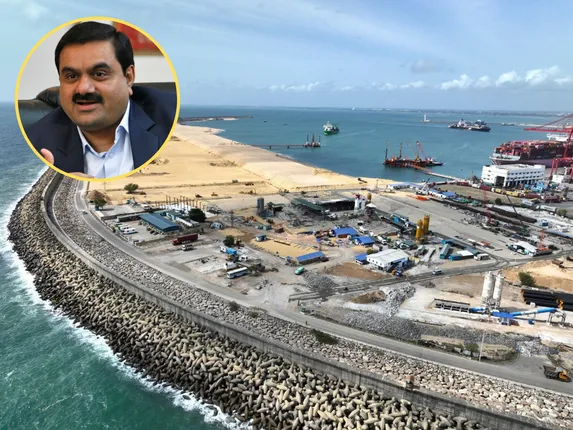
The Adani Group’s recent withdrawal of a $553 million loan from the CWIT loan deal in Sri Lanka has raised anxiety both regionally and geologically. This was initially viewed as a critical step in the Indian multinational’s efforts to expand in foreign important ports. This decision, however, also raises questions about the future of Sri Lanka’s economy and the larger geostrategic context within which its economy operates. Intertwined with this decision are various commercial, political, and diplomatic undertakings that provide many angles of interest for analysis.
The terminal in question is an extension of the commemorative international terminal in assistance in strengthening trading activities of the country’s economy. Therefore, a project such as this one is of great importance not only to the overall economic development of Sri Lanka but also to the shipping and other economic activities in the region as well as the balance of power. Adani Ports won the bid to implement the project as part of an initiative by India to expand its influence and position itself as a major competitor against China in implementing crucial projects in the Indian Ocean in light of the BRI.
Adani’s choice to not only pull out of the deal but also continue being a part of it through internal capital is quite complicated. The reason for this withdrawal appears to be the change in the financial and geopolitical aspects. Adani’s standing in the corporate world has already come under immense strain. The group has been engaged in various financial and governance-related controversies during the past year including stock manipulation, environmental breach, and accounting practice controversies. Such scandals have not only dampened the confidence of the investors in the group but have also cast shadows over the group on handling the management of such huge projects that would require funding from other major Western strong institutions.
The disengagement from the American loan agreement specifically demonstrates these issues. DFC was meant to be a critical lender for the terminal project since the borrowed funds were meant to assist Sri Lanka in getting out of debt and developing Colombo Port as an important center. The withdrawal could represent greater apprehension among Western investors about Adani’s corporate governance in addition to the risks of funding projects in Srilanka which is already in an economic crisis. Recently, the US has been careful in dealing with countries or projects associated with such entities especially when they have geopolitical considerations. For the United States, the apparent disunity within the Adani group may have represented too big of a threat to their economic interests which made them look for other means of financing.
This alteration of the financial approaches will further destabilize the already fragile economy of Sri Lanka. The CWIT project was, after all, supposed to increase foreign investment, create job opportunities, and boost trade capacity, while the country was still grappling with the effects of a massive economic crisis caught in the thick of it. Adani said the withdrawal would not be a death blow for the project, but the long-term implications for Sri Lankan infrastructure and its economy are unsettled. Such also will spell doom for Sri Lanka’s attractiveness to other foreign investors. If Adani, with its deep capital and wider networks, can’t secure financing through traditional means, it will spell doom to some other smaller or risk-averse investors trying to look at the Sri Lankan market.
On the other hand, this has great geopolitical ramifications. The Sri Lankan government, now sandwiched between twin competing influences from China and India on one side and from the West on the other, will now have to handle the fallout of such a decision with care. The port project was viewed not just as an economic undertaking but, rather, as a strategic venture in the context of the power struggles besetting the region. Adani’s withdrawal from the U.S. loan deal may symbolize a retreat from the wider “Indo-Pacific” strategy in which India and the United States have strengthened collaboration in countering China’s maritime ambitions. If U.S. support is quite unclear now, it only makes Sri Lanka all the more vulnerable concerning its foreign relations.




